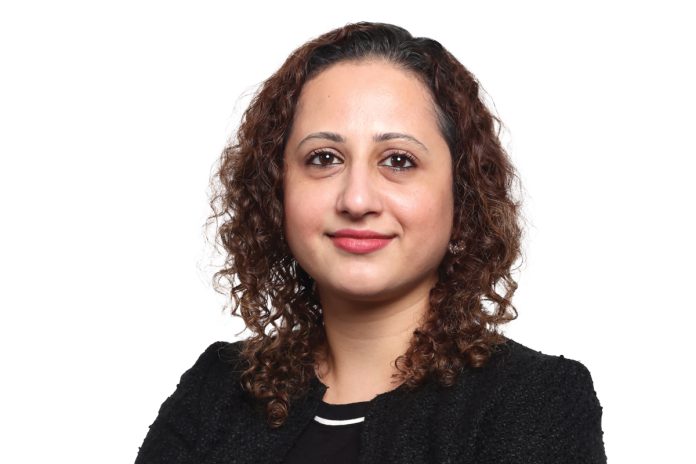Creating a diverse and inclusive workforce can be a competitive edge, and equally a value creator for all stakeholders
Words by Shireen Mistree
The workplace today is an outcome of constant evolution and what keeps an organisation relevant and resilient is its ability to adapt and assimilate seamlessly globally. In this endeavour, an inclusive company is the cornerstone for organisational success. VFS Global is such a company, where we understand that fostering an inclusive culture is not merely an afterthought but an integral part of our People strategy.
We understand the importance of diversity and inclusivity as a multinational company with operations in more than 150 countries and a workforce made up of 153 nationalities. Diversity, equity, and inclusion are closely related to our key management goals, and the leadership team constantly engages with staff members to promote an inclusive workplace culture.
This is because, as a business, we believe that having a diverse workforce and embracing it has helped us stay strong, given us a competitive edge, and allowed us to create value for all our stakeholders. This is the result of training and awareness programmes, systemic interventions, and leadership encouragement to promote inclusivity.

VFS Global has designed and developed a Diversity, Equity, and Inclusion (DEI) policy based on the values of respect, tolerance, and empowerment to create a blueprint that functions at all levels. It should be mentioned that we were careful to include inclusive language in the drafting of these policies. The DEI policy and initiatives create an environment where all employees, regardless of business function, are given the chance to support projects that give their peers and team members a sense of belonging. It also identifies the absolute non-negotiables when it comes to working alongside colleagues. We actively work to prevent modern slavery and unconscious bias, and through our community investments support initiatives that foster an empowering atmosphere and skill and upskill people from marginalised backgrounds.
Our inclusion strategy is primarily focused on closing the employment gap, facilitating internal training and awareness campaigns, diversifying the supplier chain, and assisting with community projects that aim to include all demographic. By establishing inclusive recruitment and selection procedures and offering equal chances to all, we proactively work to close the employment gap. Over the past several years, there has been a greater emphasis placed on providing employees with the skills they need to build a more inclusive workplace and training on unconscious bias.
Additionally, an inclusive language guide has been developed for colleagues, giving them a foundational understanding of cultural sensitivity and the use of expressions that are respectful and acceptable in different contexts. Additionally, there is a chance to affect inclusion through business functions. For instance, in order to foster inclusivity and provide marginalised groups with economic opportunity, we urge our procurement staff to collaborate with different suppliers. As part of our giving back to the community, we support and facilitate a range of programmes that advance diversity and inclusion. For us at VFS Global, it is the collective responsibility of all business functions to promote inclusion.
Given the diversity of backgrounds of our employees, we have focused sensitisation training for various teams over the past few years. After the seminars, participants typically comment on how inspiring it is to collaborate with other colleagues since they bring such a variety of unique viewpoints that foster creativity and innovation, two more of VFS Global’s fundamental values.
One recent instance is the ten-year tenure of a colleague at VFS Global, which included work in China, South Asia, Europe, and the Middle East. They credited our organisational policies and training programmes, which helped debunk cultural beliefs and biases and effectively delivered on crucial business results, for their successful ascent within the company. This illustrates how our inclusive strategy fosters corporate success in addition to benefits employees.

Commercial acumen is necessary to grow a worldwide company, but in the process, one cannot undervalue the importance of an inclusive culture. Both are essential for promoting organisational performance and business expansion. We also credit retention to our inclusive culture. The establishment of staff resource groups or allyship programmes is one of the initiatives that has proven successful for VFS Global. We hope to act as a bridge for under-represented populations through them. Through our allyship programme, employees are encouraged to promote and support under-represented groups, with a particular emphasis on women, people of colour, persons with disabilities, and young people with promise. The objectives of this project are to alleviate disparities, help, and foster an atmosphere that is more welcoming.
At VFS Global, we think that maintaining an inclusive and welcoming work environment is critical to our success. By putting these programmes into action and cultivating a culture of belonging, we are establishing a setting where everyone is appreciated and respected and encouraged to contribute to the full extent possible.
Shireen Mistree is the Head of ESG at VFS Global, where she drives the development and implementation of ESG strategy and initiatives across the company’s global operations. Shireen works closely with top management, internal teams, and stakeholders to ensure that VFS Global capitalizes on opportunities to strategically advance its ESG goals.


